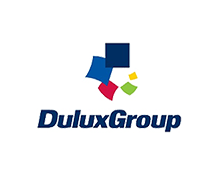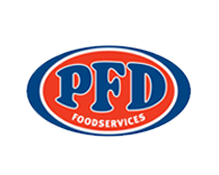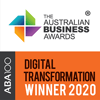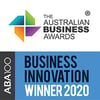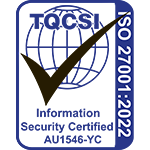Machine Translation
Machine translation is a process of translating text or speech from one language to another.
Machine translation has become a widely discussed topic in recent years. It is an artificial intelligence technology which enables computers to automatically translate from one language into another. This technology has the potential of revolutionising global communications, allowing for greater cultural understanding and exchange. As its use increases, it is important to understand how machine translation works and what implications it may have on our lives. This article seeks to provide an overview of this powerful tool, exploring both its benefits and drawbacks.
The concept of machine translation dates back centuries; however, modern computer-based systems are a relatively new development. By utilising sophisticated algorithms and natural language processing techniques such as speech recognition and text analysis, these systems can accurately convert written or spoken texts from one language into another with minimal human input. Although the accuracy of these translations varies depending on source material, many find them useful in conveying basic meaning across cultures quickly and easily.
As with any new technology, there are pros and cons associated with using machine translation services. On the one hand, they facilitate cross-cultural communication by providing quick access to information that was previously inaccessible due to linguistic barriers; on the other hand, their lack of context means that mistranslations could cause misunderstandings or even serious errors in communication. In order to make informed decisions about whether or not to utilise machine translation services, we must first take a closer look at how they work and examine their potential implications for society as a whole.
What Do You Mean By Machine Translation?
Machine translation (MT) is a type of technology that enables automatic, or computer-generated, translations of text and speech from one language to another. It offers the possibility for faster and more accurate translations than manual methods such as dictionary-based machine translation (DBMT). MT systems are used in many areas including business, healthcare and education.
There are several kinds of MT software available on the market today. These include statistical machine translation (SMT), which uses probability models; neural machine translation (NMT), which employs artificial intelligence to generate more human-like output; and rule-based machine translating (RBMT), which relies on dictionaries and grammar rules. Additionally, some companies offer comprehensive translation management systems that combine all these types of technologies into an integrated solution.
Google Translate is perhaps the most widely used example of a machine learning system for language translation purposes. Using deep learning algorithms, Google Translate can analyse large amounts of data for patterns to produce translated sentences with higher accuracy than other techniques like DBMT or SMT alone. For businesses seeking fast and reliable results across multiple languages, leveraging AI tools like this may be beneficial in order to streamline their operations while maintaining quality standards.
What Is An Example Of Machine Translation?
Machine Translation (MT) is a technology that helps to translate text from one language to another. It uses both software and services, such as automatic translation and machine translation software, in order to produce automated translations of documents or texts. Amazon Translate is an example of a popular MT service used by businesses today.
MT can be divided into two main categories: rule-based machine translation and neural machine translation. Rule-based MT relies on linguistic rules which are applied to the source language text in order to generate the target language output. Neural Machine Translation applies artificial intelligence techniques such as deep learning for accurate translations with higher quality than traditional methods like rule-based approaches.
Organisations have begun using machine translation solutions because of its cost efficiency compared to human translators, especially when translating large volumes of content at once. In addition, it allows them to quickly localise their content into multiple languages without having any technical knowledge about the language they want translated. With advances in natural language processing algorithms and technologies, there has been significant progress made in terms of accuracy and fluency of outputs produced by machine translation technology over time, making it more viable for applications such as website localisation, document management systems, speech recognition systems etc.
What Are The Four Types Of Machine Translation?
Machine translation (MT) is a form of artificial intelligence that enables computers to translate text from one language into another. It has become an integral part of the global economy, as it allows for quick and cost-effective translations without manual labour. MT technology also provides more accurate results than traditional methods such as human translators or dictionary lookups.
The four types of machine translation are:
- Neural networks,
- Microsoft Translator,
- Translation Memory,
- and Automatic Translations.
Each type uses different techniques and algorithms to achieve its goal of producing high-quality translations in a timely manner.
Neural Networks employ complex mathematical equations to map out relationships between words and phrases in order to generate natural language processing models for translating texts. They use large datasets with millions of data points to train their system on how best to interpret languages accurately. Neural networks can be used for both source and target languages, allowing them to produce better results than other forms of automatic translation systems.
Microsoft Translator utilises existing databases and dictionaries along with advanced algorithms based on deep learning technologies - making it able to provide near-instantaneous translations. This type of machine translation works by using Natural Language Processing (NLP), which is the application of computer science principles designed to understand the structure and meaning of natural language input. The Microsoft translator service also offers features like speech recognition, handwriting recognition, phrasebook creation, and audio playback capabilities.
Translation Memory stores previously translated material in a database so that when similar content needs translating again, it can quickly identify those words or sentences already stored in the memory bank – reducing time spent reworking previous work significantly. By keeping track of changes made over multiple revisions while storing each version separately, Translation Memory ensures accuracy throughout the entire process even if multiple people work on the same project at once. In addition, this tool increases consistency across all outputs due to its ability to transfer style elements between documents automatically during the translation process evaluation research shows that TM produces higher quality output than any other method available today!
Finally, Automatic Translations are generated through software programs programmed specifically for this purpose – employing basic rules known as ‘translation engines’ which allow them to convert words from one language into another with minimal effort required from users themselves; they lack contextual understanding but still offer some degree of accuracy depending on what kind of text is being processed since these kinds of applications often rely heavily upon statistical analysis rather than true comprehension skills associated with human linguistics experts when carrying out their application within Machine Translation projects!
Why Do We Need Machine Translation?
Machine translation has become an increasingly important tool in the modern world, where communication is more necessary than ever. The development of machine translation systems and technologies have been essential for enabling accurate translations faster than can be done by human translators. Machine translation has meant that professional quality translations services are now available to those who need them without having to wait long periods of time or pay large fees.
There are four main types of machine translation: direct transfer-based, rule-based, statistical machine translation (SMT), and hybrid machine translation (HMT). Direct transfer-based involves translating words directly from one language into another using pre-defined rules; whereas rule-based relies on a set of linguistic rules to generate target sentences automatically. SMT uses probability theory and algorithms to learn how source texts should be translated while HMT combines elements of both direct transfer based and rule based approaches.
The use of online machine translation systems means that people are no longer limited by their knowledge of different languages; it gives everyone access to information quickly and accurately regardless of language barriers. The accuracy rate offered by some high quality machine translations rivals that which could only previously be achieved with costly human translators – making it much easier for businesses to conduct international operations efficiently and effectively. Furthermore, the continual improvement of such systems also promises better quality results over time, allowing users around the globe to benefit from increasingly reliable translations as technology develops further.
What Is The Role Of Machine Translation In Language Learning?
Machine translation is an automated process that translates text from one language to another. It has been used in a variety of fields, including language learning. The role it plays in this field is twofold. Firstly, machine translation can be used as a tool for learners to quickly understand and comprehend the meaning behind unfamiliar words or phrases. For example, if someone reads a sentence written in Spanish but does not know any Spanish, they can use a machine translator such as Trados Studio to translate the sentence into their native tongue. Secondly, machine translation also assists language teachers who are teaching multiple languages at once. By using cloud applications like Cloud Computing and SD WAN, instructors have access to resources which help them easily switch between speaking different languages during class time without having to pause and explain each phrase's meaning to students. This saves invaluable lesson time while still providing quality instruction.
In addition, many organisations utilise both human translators and machine translations when producing content for international audiences. Human translators typically provide more accurate translations than machines; however, due to high demand and cost-effectiveness of technology solutions like Public Clouds, Hybrid Clouds and Computing Clouds, businesses often rely on these services first before involving human experts in order to save money where possible. Moreover, with convenience provided by Cloud Platforms and Content Delivery Networks (CDNs), companies can now produce large projects faster than ever before – all thanks to advancements made in machine translation technologies over recent years.
Conclusion
Machine translation is an important tool for developing and maintaining language skills across global boundaries. It has been widely used to bridge cultural divides, facilitate communication between different languages, and support the learning of new languages. With advances in technology, machine translation can now provide high quality translations that are accurate and reliable. This makes it a valuable asset for any individual or organisation looking to overcome linguistic barriers.
The four types of machine translation – rule-based, statistical, neural network based and hybrid systems – all have their own advantages and disadvantages. Ultimately however, each type is capable of providing good results when given enough data to draw from. As such, they offer major opportunities for those who wish to learn new languages or make use of multilingual text content without having to rely on human translators.
In conclusion, machine translation provides an invaluable resource for anyone attempting to learn multiple languages or communicate with people speaking other tongues. Its ability to quickly produce high quality translations as well as its affordability makes it a great choice for crossing language barriers efficiently and effectively. In this way, machine translation continues to revolutionise our world by connecting us through the power of language.
PREVIOUS NARROW AI GLOSSARY TERM
NEXT NARROW AI GLOSSARY TERM
Machine Translation Definition
Exact match keyword: Machine Translation N-Gram Classification: Machine Translation Software, Natural Language Processing, Machine Learning Substring Matches: Translation, Machine Long-tail variations: "Machine Translation Software", "Natural Language Processing", "Automatic machine translation" Category: Artificial Intelligence, Technology Search Intent: Information, Solutions, Purchase Keyword Associations: Natural Language Processing, Machine Learning, Neural Networks Semantic Relevance: Text Analysis, Transcription Automation, Speech Recognition Parent Category: Computer Science & Technology Subcategories: Natural Language Processing, Machine Learning, Neural Networks Synonyms: Text Analysis, Transcription Automation Similar Searches : Natural Language Processing ,Machine Learning ,Neural Networks Geographic Relevance : Global Audience Demographics : Developers ,Engineers , Scientists Brand Mentions : Google , Amazon , Microsoft Industry-specific data : A ccuracy of translation tasks , Speed of translation results Commonly used modifiers : "Software", "Processing" ,"Automation” Topically relevant entities : Natural Language Processing ,Machine Learning ,Neural Networks , Automatic machine translation ,Text Analysis,Transcription Automation."Larry will be our digital expert that will enable our sales team and add that technological advantage that our competitors don't have."
Kerry Smith
CEO, PFD Foods
$1.6 billion in revenue 
"Lion is one of Australasia’s largest food and beverage companies, supplying various alcohol products to wholesalers and retailers, and running multiple and frequent trade promotions throughout the year. The creation of promotional plans is a complicated task that requires considerable expertise and effort, and is an area where improved decision-making has the potential to positively impact the sales growth of various Lion products and product categories. Given Complexica’s world-class prediction and optimisation capabilities, award-winning software applications, and significant customer base in the food and alcohol industry, we have selected Complexica as our vendor of choice for trade promotion optimisation."
Mark Powell
National Sales Director, Lion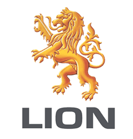
"At Liquor Barons we have an entrepreneurial mindset and are proud of being proactive rather than reactive in our approach to delivering the best possible customer service, which includes our premier liquor loyalty program and consumer-driven marketing. Given Complexica’s expertise in the Liquor industry, and significant customer base on both the retail and supplier side, we chose Complexica's Promotional Campaign Manager for digitalizing our spreadsheet-based approach for promotion planning, range management, and supplier portal access, which in turn will lift the sophistication of our key marketing processes."
Richard Verney
Marketing Manager
Liquor Barons

"Dulux is a leading marketer and manufacturer of some of Australia’s most recognised paint brands. The Dulux Retail sales team manage a diverse portfolio of products and the execution of our sales and marketing activity within both large, medium and small format home improvement retail stores. We consistently challenge ourselves to innovate and grow and to create greater value for our customers and the end consumer. Given the rise and application of Artificial Intelligence in recent times, we have partnered with Complexica to help us identify the right insight at the right time to improve our focus, decision making, execution, and value creation."
Jay Bedford
National Retail Sales Manager
Dulux

"Following a successful proof-of-concept earlier this year, we have selected Complexica as our vendor of choice for standardizing and optimising our promotional planning activities. Complexica’s Promotional Campaign Manager will provide us with a cloud-based platform for automating and optimising promotional planning for more than 2,700 stores, leading to improved decision-making, promotional effectiveness, and financial outcomes for our retail stores."
Rod Pritchard
Interim CEO, Metcash - Australian Liquor Marketers
$3.4 billion in revenue 
"After evaluating a number of software applications and vendors available on the market, we have decided to partner with Complexica for sales force optimisation and automation. We have found Complexica’s applications to be best suited for our extensive SKU range and large set of customers, being capable of generating recommendations and insights without burdening our sales staff with endless data analysis and interpretation.
Aemel Nordin
Managing Director, Polyaire
"DuluxGroup is pleased to expand its relationship with Complexica, a valued strategic partner and supplier to our business. Complexica’s software will enable DuluxGroup to reduce the amount of time required to generate usable insights, increase our campaign automation capability, personalise our communications based on core metrics, and close the loop on sales results to optimise ongoing digital marketing activity."
James Jones
Group Head of CRM, DuluxGroup
"Instead of hiring hundreds of data scientists to churn through endless sets of data to provide PFD with customer-specific insights and personalised recommendations, Larry, the Digital Analyst® will serve up the answers we need, when we need them, on a fully automated basis without the time and manual processes typically associated with complex analytical tasks.”
Richard Cohen
CIO, PFD Foods
$1.6 billion in revenue 
"As a global innovator in the wine industry, Pernod Ricard Winemakers is always seeking ways to gain efficiencies and best practices across our operational sites. Given the rise of Artificial Intelligence and big data analytics in recent times, we have engaged Complexica to explore how we can achieve a best-in-class wine supply chain using their cloud-based software applications. The engagement is focused on Australia & New Zealand, with a view to expand globally."
Brett McKinnon
Global Operations Director, Pernod Ricard Winemakers
"70% - 80% of what we do is about promotional activity, promotional pricing -- essentially what we take to the marketplace. This is one of the most comprehensive, most complex, one of the most difficult aspect of our business to get right. With Complexica, we will be best in class - there will not be anybody in the market that can perform this task more effectively or more efficiently than we can."
Doug Misener
CEO, Liquor Marketing Group
1,400+ retail stores 
"The key thing that makes such a difference in working with Complexica is their focus on delivering the business benefits and outcomes of the project."
Doug Misener
CEO, Liquor Marketing Group
1,400+ retail stores 
"Australia needs smart technology and people, and it has been a great experience for me to observe Complexica co-founders Zbigniew and Matt Michalewicz assemble great teams of people using their mathematical, logic, programming, and business skills to create world-beating products. They are leaders in taking our bright graduates and forging them into the businesses of the future."
Lewis Owens
Chairman of the Board, SA Water 
"Having known the team behind Complexica for some years ago now, I am struck by their ability to make the complex simple - to use data and all its possibilities for useful purpose. They bring real intelligence to AI and have an commercial approach to its application."
Andrew McEvoy
Managing Director, Fairfax Media - Digital 
"I have worked with the team at Complexica for a number of years and have found them professional, innovative and have appreciated their partnership approach to delivering solutions to complex problems."
Kelvin McGrath
CIO, Asciano 
“Working with Complexica to deliver Project Automate has been a true partnership from the initial stages of analysis of LMG’s existing processes and data handling, through scoping and development phase and onto delivery and process change adoption. The Complexica team have delivered considerable value at each stage and will continue to be a valued partner to LMG."
Gavin Saunders
CFO, Liquor Marketing Group 
“Complexica’s Order Management System and Larry, the Digital Analyst will provide more than 300 Bunzl account managers with real-time analytics and insights, to empower decision making and enhanced support. This will create more time for our teams to enable them to see more customers each day and provide the Bunzl personalised experience.”
Kim Hetherington
CEO, Bunzl Australasia 
"The team behind Complexica develops software products that are at the cutting edge of science and technology, always focused on the opportunities to deliver a decisive competitive edge to business. It has always been a great experience collaborating with Matthew, Zbigniew and Co."
Mike Lomman
GM Demand Chain, Roy Hill Iron Ore 
"The innovations that the Complexica team are capable of continue to amaze me. They look at problems from the client side and use a unique approach to collaborating with and deeply understanding their customers challenges. This uniquely differentiates what they bring to market and how they deliver value to customers."
John Ansley
CIO, Toll Group 
"Rather than building out an internal analytics team to investigate and analyse countless data sets, we have partnered with Complexica to provide our sales reps with the answers they need, when they need them, on a fully automated basis. We are excited about the benefits that Larry, the Digital Analyst will deliver to our business.”
Peter Caughey
CEO, Coventry Group 
“Complexica’s Order Management System and Larry, the Digital Analyst will provide more than 300 Bunzl account managers with real-time analytics and insights, to empower decision making and enhanced support. This will create more time for our teams to enable them to see more customers each day and provide the Bunzl personalised experience.”
Kim Hetherington
CEO, Bunzl Australasia 
"After an evaluation process and successful proof-of-concept in 2016, we have chosen to partner with Complexica to upgrade the technological capability of our in-field sales force. The next-generation Customer Opportunity Profiler provided by Complexica will serve as a key tool for sales staff to optimise their daily activities, personalise conversations and interactions with customers, and analyse data to generate actionable insights."
Stephen Mooney
Group Sales Capability Manager, DuluxGroup
$1.7 billion in revenue
"After evaluating a number of software systems available in the marketplace, we have ultimately selected Complexica as our vendor of choice for sales force automation and CRM. Given the large SKU range we carry and very long tail of customers we serve, Complexica’s applications are best suited to deal with this inherent complexity without burdening our staff with endless data entry."
Nick Carr
CEO, Haircaire Australia
Australia's largest distributor of haircare products
“Asahi Beverages is Australia’s largest brewer, supplying a leading portfolio to wholesalers and retailers, including some of Australia’s most iconic brands. Last year Asahi Beverages acquired Carlton & United Breweries, which is its Australian alcohol business division. To harness the strength of our expanded portfolio, we partner with our customers to run multiple and frequent trade promotions throughout the year, delivering long-term growth for both our business and theirs. Given the inherent complexity in optimising promotional plans and our continued focus on revenue and growth management, we have selected Complexica as our vendor of choice after a successful Proof-of-Concept of its world-class optimisation capabilities.”
Kellie Barnes
Group Chief Information Officer
Asahi Beverages
"Dulux is a leading marketer and manufacturer of some of Australia’s most recognised paint brands. The Dulux Retail sales team manage a diverse portfolio of products and the execution of our sales and marketing activity within both large, medium and small format home improvement retail stores. We consistently challenge ourselves to innovate and grow and to create greater value for our customers and the end consumer. Given the rise and application of Artificial Intelligence in recent times, we have partnered with Complexica to help us identify the right insight at the right time to improve our focus, decision making, execution, and value creation."
Jay Bedford
National Retail Sales Manager, DuluxGroup
"At Liquor Barons we have an entrepreneurial mindset and are proud of being proactive rather than reactive in our approach to delivering the best possible customer service, which includes our premier liquor loyalty program and consumer-driven marketing. Given Complexica’s expertise in the Liquor industry, and significant customer base on both the retail and supplier side, we chose Complexica's Promotional Campaign Manager for digitalizing our spreadsheet-based approach for promotion planning, range management, and supplier portal access, which in turn will lift the sophistication of our key marketing processes."
Richard Verney
Marketing Manager, Liquor Barons








